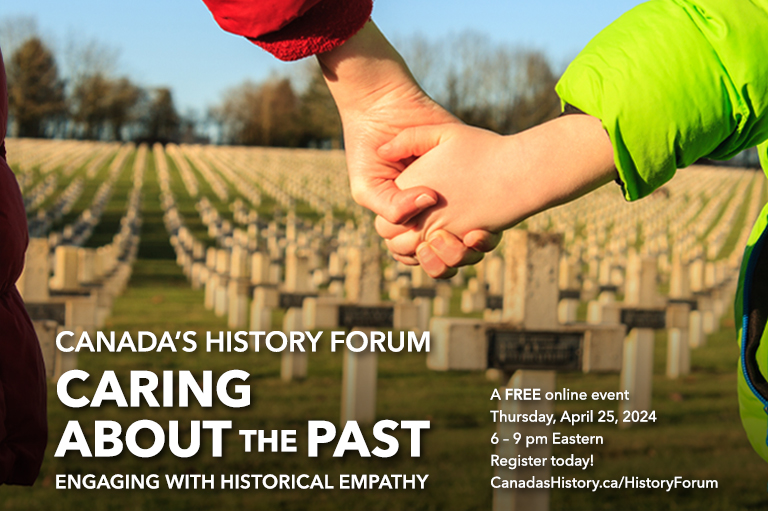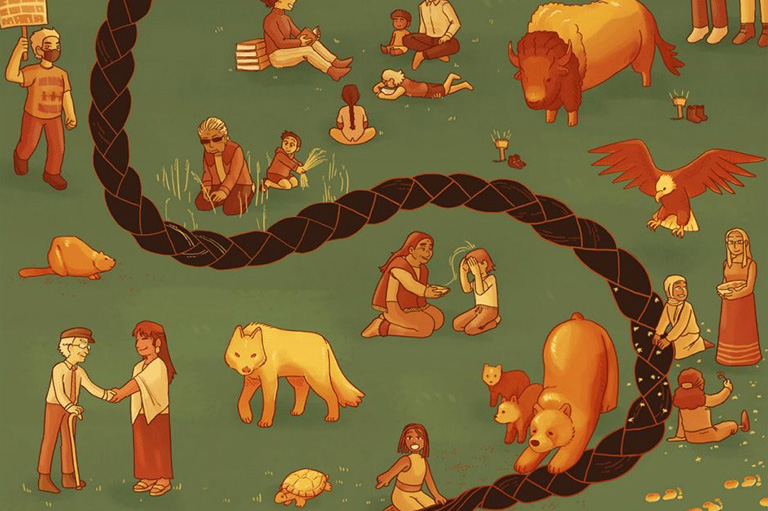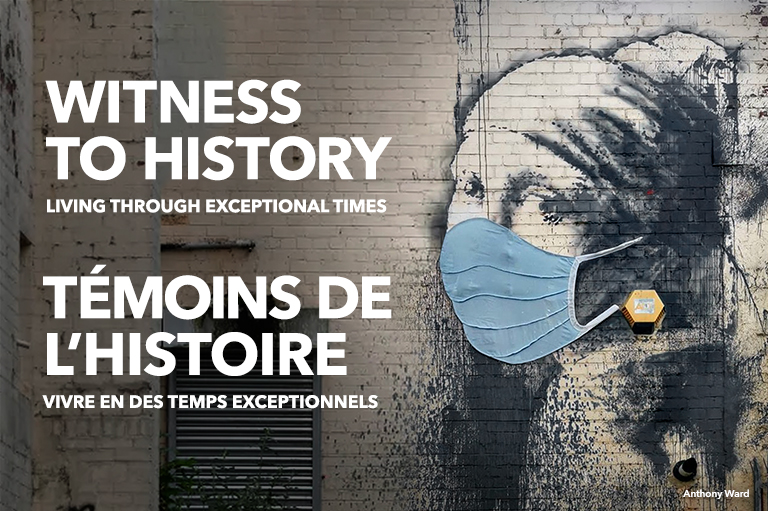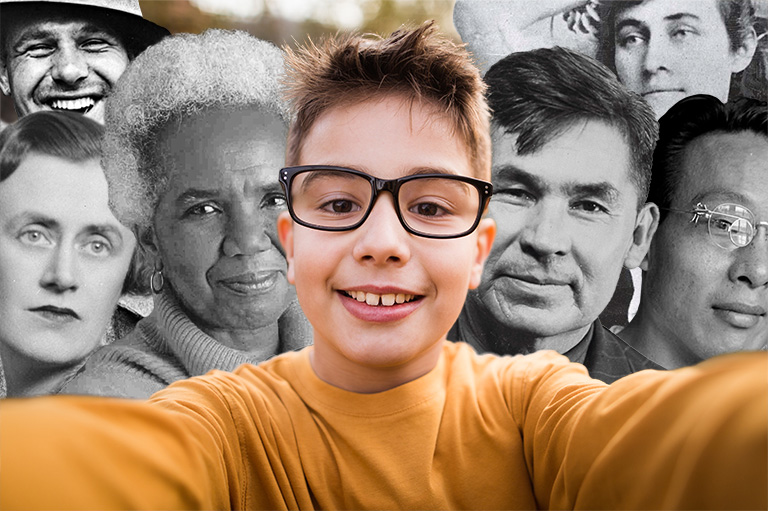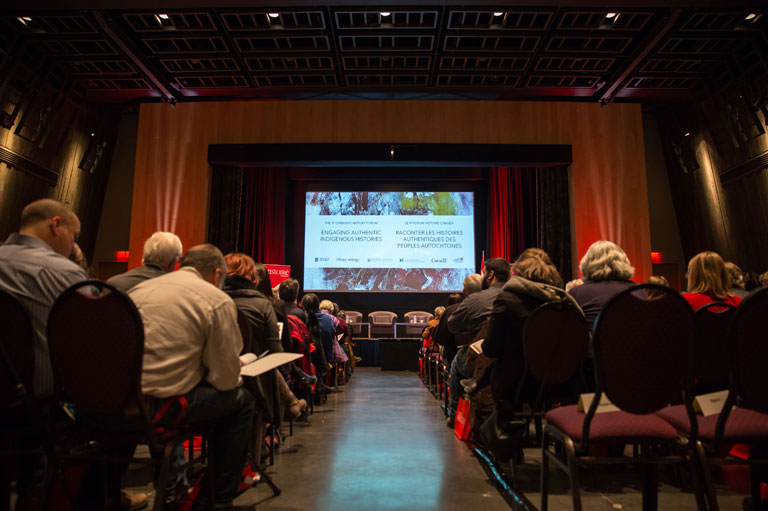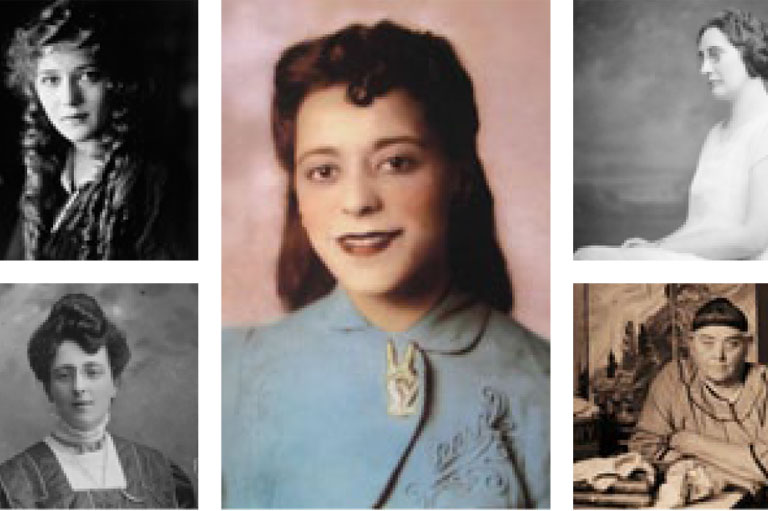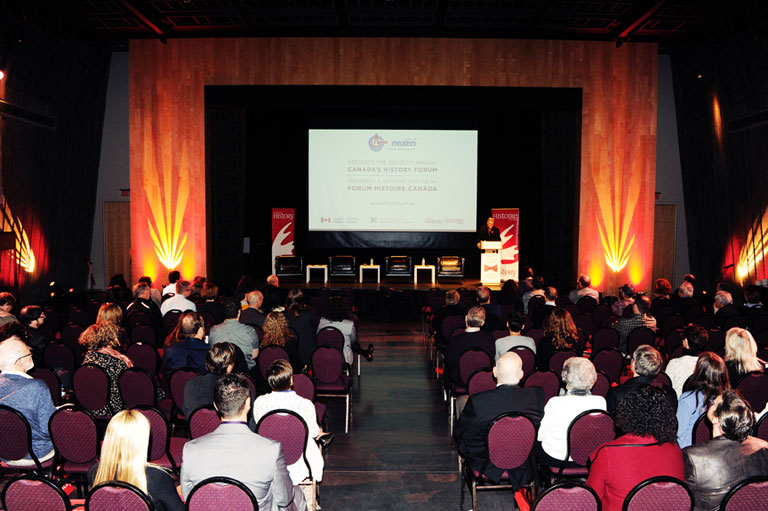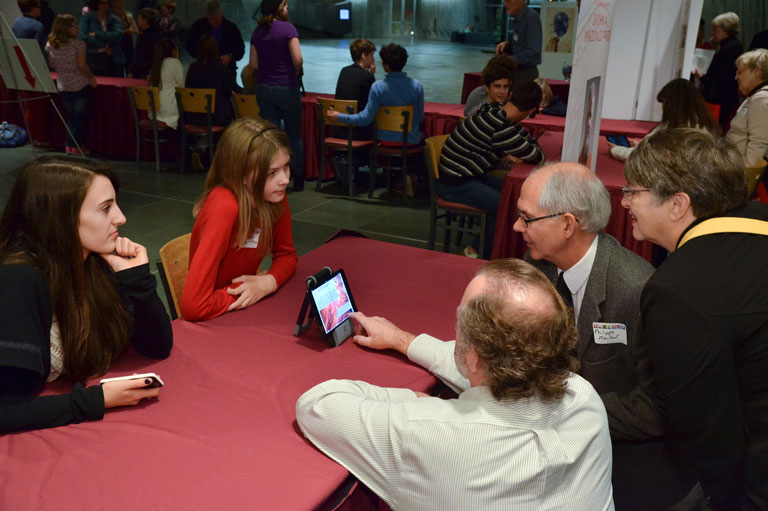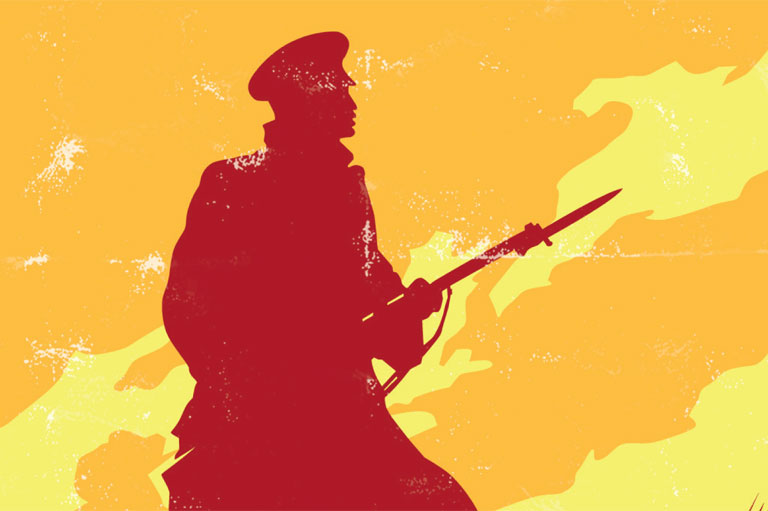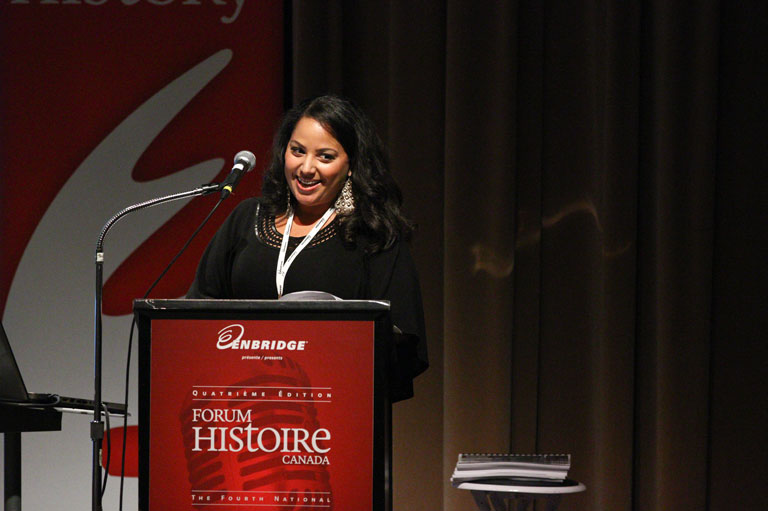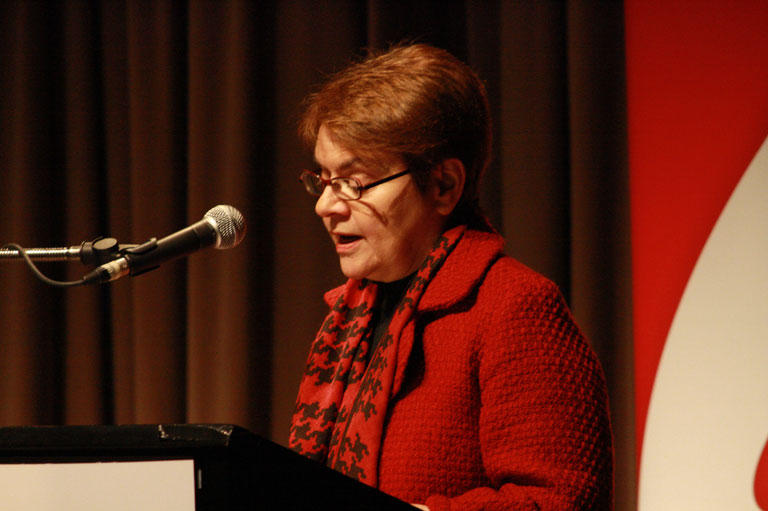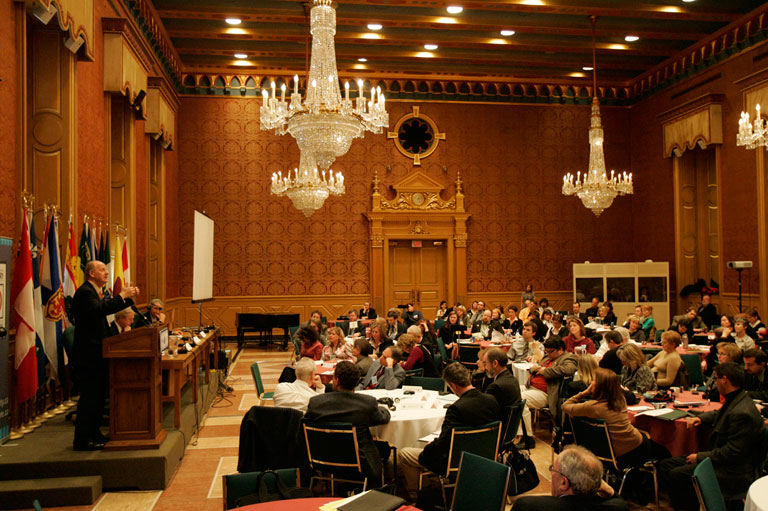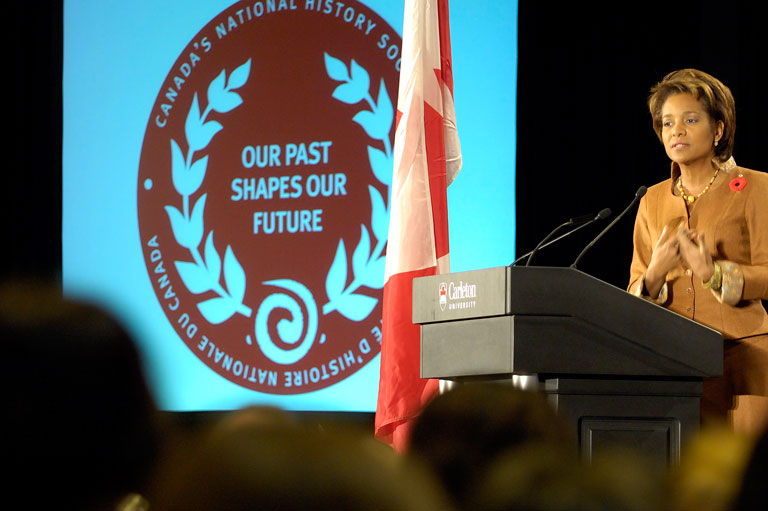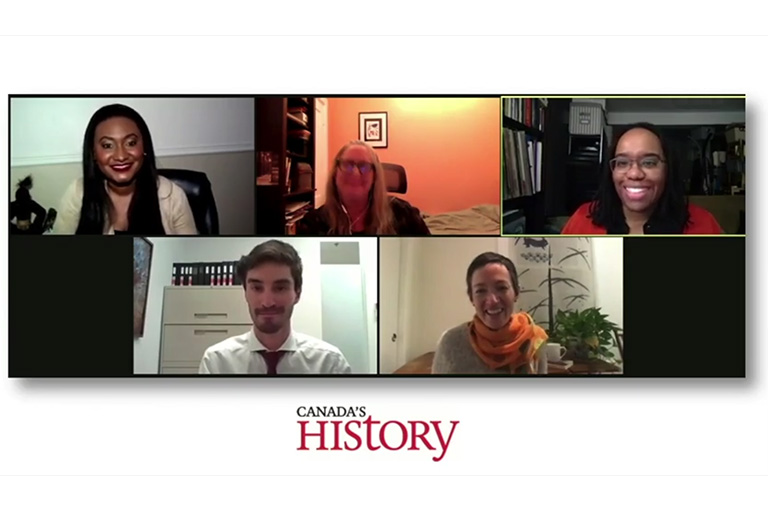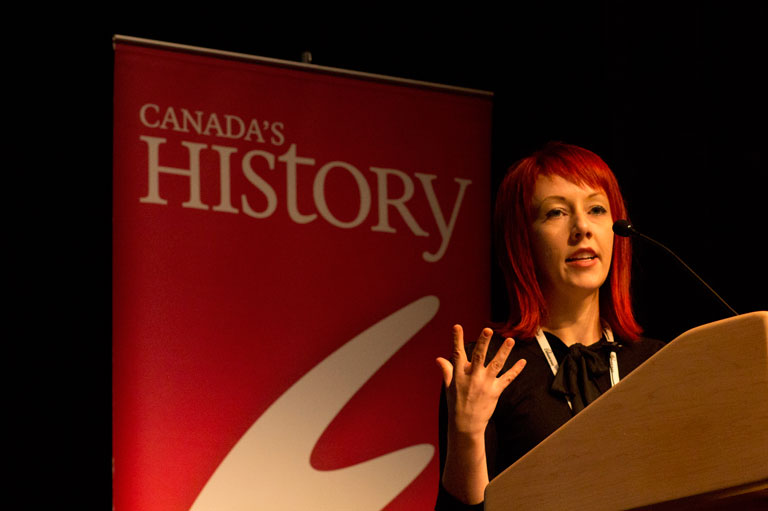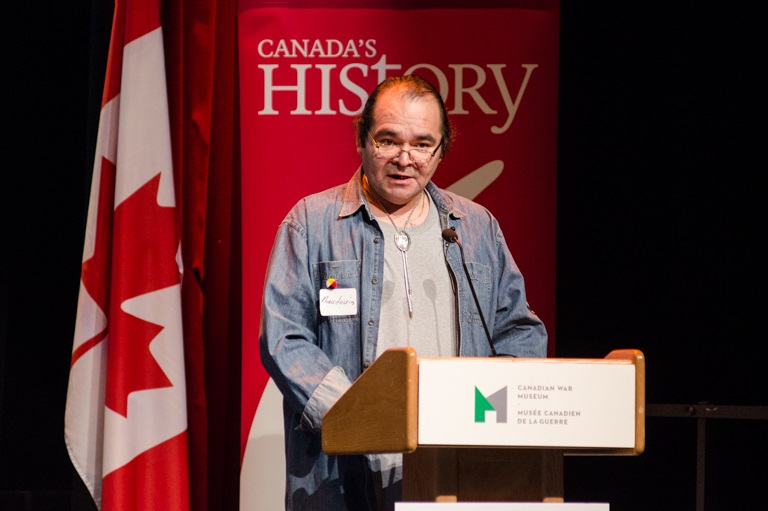When History Meets the Environment

The natural environment has always been central to the history of what is now known as Canada, shaping the lives, cultures, and economies of its peoples. From the animals that sustained Indigenous communities to the rivers and lakes that served as transportation routes, and from historical and modern land struggles to today’s climate crisis, our environment continues to define our collective story.
The 2025 Canada’s History Forum explored how history and education can help us understand and address environmental challenges. Through thought-provoking presentations and discussions, we examined:
- how past interactions with the environment inform current issues
- strategies for learning from land, water, plants, animals, and their surroundings
- the role of history education in equipping students — and ourselves — to confront climate change
- what insights Indigenous knowledge systems and sustainable practices offer for a better future
Presenters:
- Tanya McCallum (land-based educator, Muskoday First Nation Community School)
- Heather E. McGregor (Faculty of Education, Queen's University and founding member of Social Studies & History Education in the Anthropocene Network)
- Pierre Lahoud (historian and aerial photographer)
- Glen Thielmann (teacher and PhD candidate, University of Northern British Columbia)
Watch the presentations
RECOMMENDED READING & RESOURCES
Reading
Atkinson, J., and Ray, S. J. (2024). The Existential Toolkit for Climate Justice Educators. University of California Press Books.
Grenz, J. (2024). Medicine Wheel for the Planet: A Journey toward Personal and Ecological Healing. Knopf Canada.
Kretz, L., and Flavin, M. (2022). Eco-anxiety and Teaching for Emotional Well-Being: A Primer. SSHEAN.
Louv, R. (2005). Last Child in the Woods: Saving our Children from Nature Deficit Disorder. Algonquin Books.
Louv, R. (2011). The Nature Principle. Algonquin Books.
MacEachern, A. "A Crash Course in Canadian Environmental History." NiCHE. 18 January 2024.
Oreskes, N., and Conway, E. M. (2011). Merchants of Doubt: How a Handful of Scientists Obscured the Truth on Issues from Tobacco Smoke to Global Warming. Bloomsbury Publishing.
Pinchin, K. (2023). Kings of Their Own Ocean: Tuna, Obsession, and the Future of Our Seas. Knopf Canada.
Research for the Anthropocene (SSHEAN)
Thielmann, G., Lewis, R., Martin, J., Pereira, J., Truant, V., et al. (2018). Thinking it Through: A Social Studies Sourcebook. Toronto: Pearson Canada.
Land-based Learning
Program: https://www.facebook.com/LandbasedEd (Tanya McCallum)
Program: https://www.facebook.com/DeadPineCollective
Project: Art for the Anthropocene (SSHEAN + Tiina Kukkonen)
Classroom Resources
Network in Canadian History & Environment
Teaching Resources for the Anthropocene (SSHEAN)
Websites
SSHEAN (Heather E. McGregor)
Historien, photographe aérien, spécialiste du patrimoine (Pierre Lahoud)
Web River, a Teacher's Journey through an Educational Landscape (Glen Thielmann)
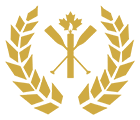
Nominate them today for the Governor General's History Award for Excellence in Teaching!
But please note: the nomination is just a first step; once nominated, nominees usually finish the application themselves and require a reasonable amount of time to respond to questions and collect supporting documents.
The deadline for this year’s award is April 1.
Themes associated with this article
Advertisement
This event is made possible with the support of the Department of Canadian Heritage.





